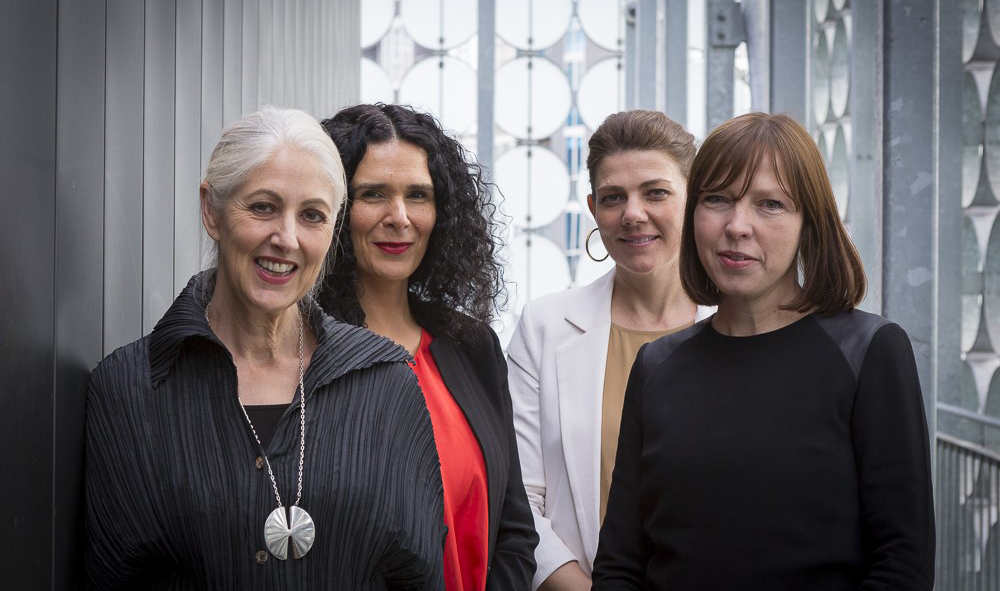
Women in architecture
In the lead-up to International Women’s Day 2019, these successful female leaders of the architectural profession, all RMIT alumni or staff, are available to discuss their thoughts on where our cities are going and the health of our built environment.
 From left: Jill Garner (OVGA), Vivian Mitsogianni (RMIT), Clare Cousins (AIA), Amy Muir (AIA Vic. chapter and RMIT)
From left: Jill Garner (OVGA), Vivian Mitsogianni (RMIT), Clare Cousins (AIA), Amy Muir (AIA Vic. chapter and RMIT)
- Some of Australia’s leading architectural voices are female RMIT staff and alumni who are contributing to transformational leadership and activism at state and national level.
- RMIT’s Bachelor of Architecture is the University’s most sought-after course for Victorian school leavers.
CLARE COUSINS, National President, Australian Institute of Architects (AIA). Mobile number: 0412384439
Topics: Affordable housing, new heritage and retention and use of public buildings (e.g. ANZAC Hall proposed demolition / Sydney Opera House illumination).
“We are keen to see high quality affordable housing units delivered nationally in various models. It is essential for architects to co-deliver these projects to ensure that design-thinking is embed in projects from the beginning. Too often the focus is on speed and cost, however housing should be ecologically and socially sustainable to provide liveable environments for people.”
AMY MUIR, Victorian Chapter President, AIA. Mobile number: 0421 128 684
Topics: Better Apartment Standards, proposed amendments to the Melbourne Planning Scheme that propose a new approach to urban design policy, large practice forums which seek an evidence-based approach to key issues affecting the industry (e.g. novation) and the importance of external advocated for the architectural practice.
“There are many opportunities to find a voice, and one of the things I’ve been doing in the role is finding mechanisms for having common conversations with varying industry bodies.”
““Novation is one of the major issues that we are all battling with and we recognise that it is not just an industry-based condition: it is far reaching and has a knock-on effect to the major contractors, how the government are procuring projects and the quality of our built environment.”
JILL GARNER, Victorian Government Architect. Contact via RMIT Communications team: 0439 704 077
Topics: embedding design ambition for the public realm, influencing government on processes that achieve quality-built outcomes, external advocacy for the architectural practice.
“There is great responsibility in the proposition that we should build places and spaces that do not need to be replaced in the foreseeable future. We should design projects that become a legacy to the place they are built.”
“When government is a client of design in the public realm, they must consider, is our community going to be pleased and proud of their city / regional centre / suburb forever?”
- Architecture
- Property & Construction
Acknowledgement of Country
RMIT University acknowledges the people of the Woi wurrung and Boon wurrung language groups of the eastern Kulin Nation on whose unceded lands we conduct the business of the University. RMIT University respectfully acknowledges their Ancestors and Elders, past and present. RMIT also acknowledges the Traditional Custodians and their Ancestors of the lands and waters across Australia where we conduct our business - Artwork 'Sentient' by Hollie Johnson, Gunaikurnai and Monero Ngarigo.